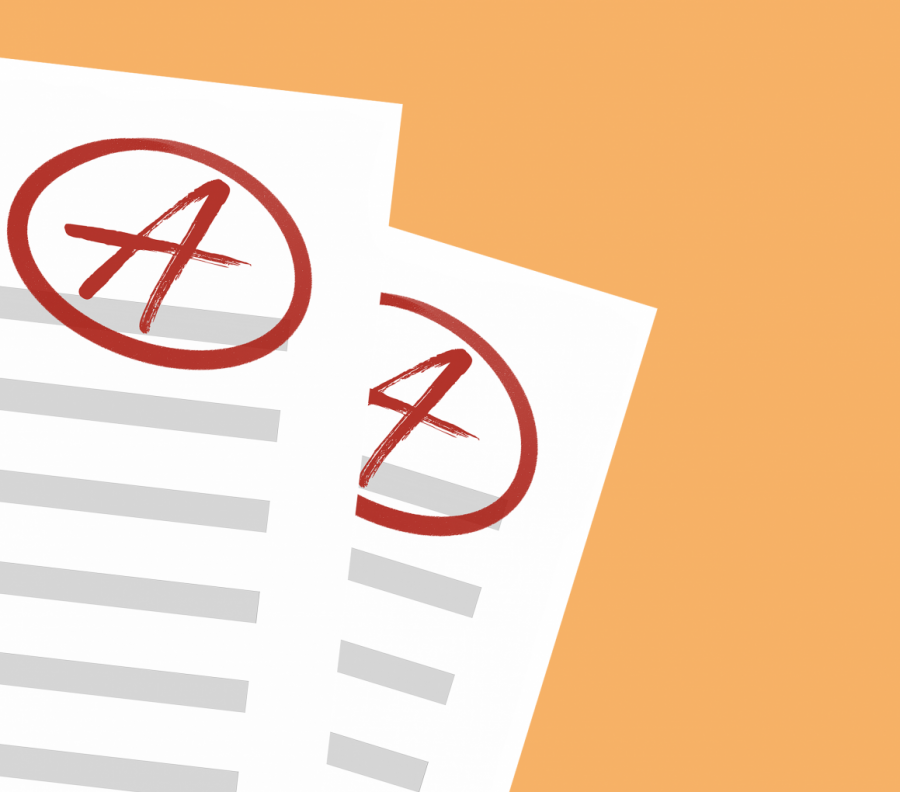The price of perfection
The negative impact of setting ambitious standards
March 22, 2021
Attentive note taking, constant studying and skewed school-life balance, the fight to keep up with often unrealistic standards is a daily one for those who consider themselves perfectionists. While the changes to schooling brought by the COVID-19 pandemic have affected all students, perfectionists in particular are feeling its effects in a unique way. Since perfectionists are used to having control over their academics, how are they coping with this sudden lack of control?
One of the primary ways students can take initiative in their learning is by getting help when they don’t understand some of the information presented in class. Junior Ella Salem, who considers herself a perfectionist, said, “It is harder to talk in class and ask questions like I used to do a lot.”
Teachers have also noticed the difference. “It takes a lot of courage to ask for help and it seems as though it is more difficult to ask for help when students are on zoom,” math teacher Julianne Spry said.
When it comes to asking questions, students either have to send a question via the Zoom chat and hope for a timely response or unmute and interrupt, as raising their hand is not an option. Because of this, many students have stopped asking for help all together.
Additionally, being at home means there are a variety of distractions and the struggle of possibly unpredictable internet.
“I feel as though there are many factors that are very distracting to students in this situation…you have to consider other siblings being at home or even just pets that don’t allow students to truly focus, being in school is the best learning environment, but that too is out of students’ control,” Spry said. “When on zoom, you aren’t able to learn as well as in the classroom. Therefore when you are in class (if even at all), students are trying to catch up on what they ‘missed’ while on zoom.”
In an Instagram poll of Lincoln Southeast High School (LSE) students, 68 percent said that they consider themselves perfectionists. The number of people considering themselves to be perfectionists is increasing and has been for the past three decades, according to a study published in 2019 by TED speaker Thomas Curran and York St. John University professor, Andrew Hill. The findings indicated that “recent generations of young people perceive that others are more demanding of them, are more demanding of others, and are more demanding of themselves.”
Perfectionism is often a glorified trait, seen as something that everyone should strive for. In a study by Daniel Madigan, a senior lecturer at York St. John University, he found that perfectionism is a predictor of better academic achievement. But while there are benefits, there are also hidden downsides that come with it.
Salem has always considered herself a perfectionist. “[My perfectionism] makes me an overachiever and very involved in activities,” Salem said. “[My] mom has always pushed me to work hard, this has made me work harder in school.”
With the lack of control she has experienced this year, Salem said she feels the pressure. “It’s made me more stressed because I feel like my grades are out of my hands and I get mad at myself for not getting all A’s. I work much harder in order to keep up.”
Just like students, teachers have also felt a lack of control. “I know that I consider myself a perfectionist and I have had to compromise a lot. This environment of teaching makes it extremely difficult to do my job well and I struggle with not being able to teach well,” Spry said.
According to clinical psychologist Desiree Dickerson, striving for perfection can be unhealthy when it leads to an identity solely based on achievements. The belief that one’s perfectionism is the main factor in their success is also quite harmful as it undermines confidence. This is especially true in this unpredictable time when many compromises have had to be made and the goal should be just trying to get by.
Because of this mindset, perfectionists are prone to black and white thinking. They may avoid opportunities when they feel that success is uncertain or refuse to try something new out of fear they may not be “good enough” at it right away. When it comes to school this can lead to procrastination when starting a big assignment, leaving it to the last minute and ensuring that it won’t be the best that it could have been. Leading them to become more doubtful of their abilities.
Perfectionists may also react strongly to any negative criticism and become defensive. This is also due to the idea that their success is what defines them. In order to avoid failure and criticism they may overwork themselves leading to inevitable burnout.
Perfectionists have already been known to overwork themselves, and due to the increased stress brought by the difficulty of remote learning they have had to work even harder to keep up with the workload and maintain their grades. To combat this they likely have taken one of two possible routes. They may either work even harder in order to keep up, or give up after deciding that their grades are not worth the stress.
Salem chose the former, opting to keep working hard. ”At times I feel like I want to just give up, but the stress of having missing assignments is too much to handle,” Salem said. “I have attempted to take a break from the stress of school but I find it’s more stressful than the actual homework itself.”
Many students have experienced burnout because of this. Symptoms of this can include anxiety, physical and mental exhaustion, lack of sleep, a shortened temper and headaches. Burnout is something that can take varying spans of time to recover from depending on how severe.
“Because of COVID-19, I have had almost no personal life, it’s more important right now to think about my mental health and not pushing myself too hard,” Salem said.
The onset of burnout varies from person to person, and while it is not possible to ensure you do not experience it, it is recommended to stay conscientious of your “work-life balance” to ensure you give yourself proper time to rest and destress.









